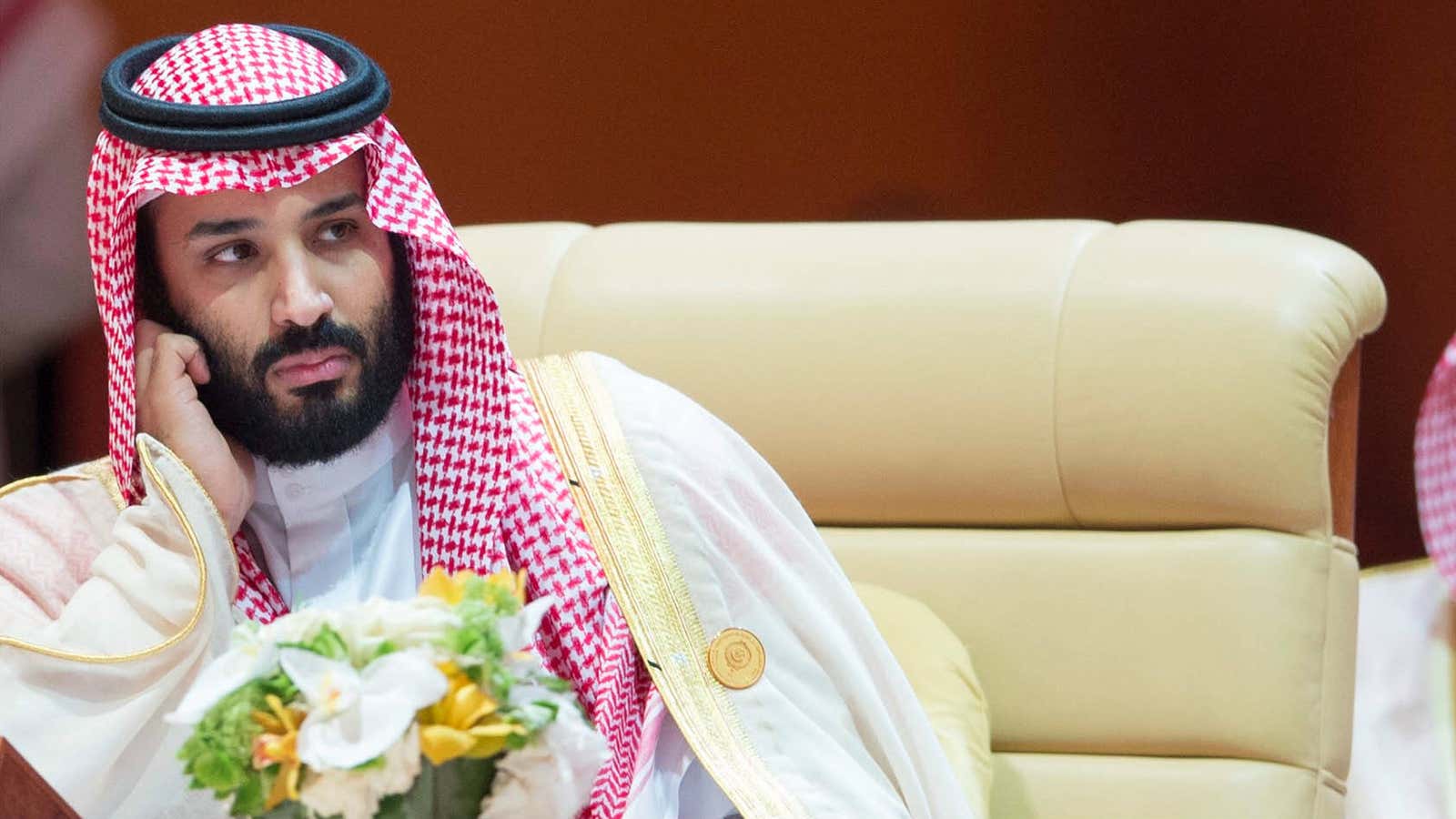Led by one of the world’s most powerful millennials, Saudi Arabia is moving into an unprecedented era of social and economic change.
That’s why he is letting the ultra-conservative kingdom’s subjects go to the movies again.
The lifting of the 35-year ban by crown prince Mohammed bin Salman, also known as MBS, is the latest sign of embracing the changes that appear to be essential in sustaining the country’s power and wealth. Saudi Arabia is desperate to relinquish its economic dependence on oil and MBS has been trying to steer toward a future that diversifies the ways it makes money.
The kingdom has been doing away with some of its most archaic bans, such as the one of that kept women from driving. Many of the changes—including allowing women to start their own business without a male guardian—can be seen as part of the concerted effort to address the country’s appalling human-rights record, but economic factors are a large part of the motivation.
The cinema ban lift, for instance, brings in a previously untapped and lucrative revenue stream. The government already knows that its people are hungry for films. A 2014 study showed that Saudis watch films online on a weekly basis. Government data said that Saudis already spend $30 billion—close to 5% of GDP— on entertainment and hospitality elsewhere in the Middle East and flock to nearby Dubai and Bahrain to watch films in theaters. So imagine if even a slice of those billions are kept in the country.
The Saudi population is also incredibly young—a majority of its 32 million people are under 30. Young Saudi film-makers are also making waves, such as with Haifaa Al Mansour’s Wadjda, which became the nation’s first female-created film and an Oscar entry.
The movie industry is too lucrative for Saudi Arabia to ignore, which is why it created a $2.7-billion entertainment firm and ploughed $64 billion in its entertainment industry with the hope of creating 22,000 local jobs by 2030. Its new AMC cinema in Riyadh marks the start of this new era.
